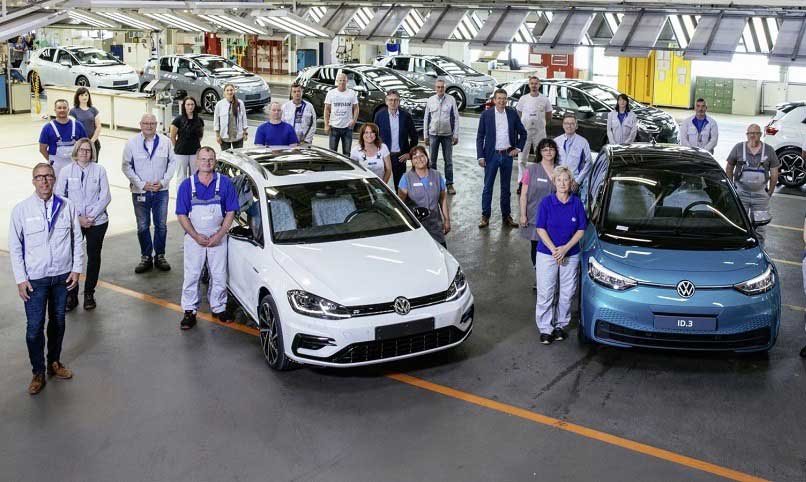02 July 2020
As national and international coronavirus (COVID-19) recovery plans emphasise a green comeback, the automotive industry is having to map out a path to a low-emissions future. Volkswagen Group (VW) acknowledged the need for efficiency and sustainability as part of its ‘Together 2025+’ strategy, and now its electric evolution continues.
As one of the carmaker’s factories sees out its last combustion-powered car, VW looks to be putting all its efforts into making sure the road ahead is clear for electric vehicles (EVs). From stress testing its headline EVs to wrestling with persistent software issues, the German manufacturing group still has a way to go before it reaches its electric destination.
The Volkswagen brand is planning to offer EVs in all the main vehicle segments by 2022. The manufacturer is investing €33 billion across the group up to 2024, with €11 billion earmarked for the Volkswagen brand alone. For 2025, the Volkswagen brand expects to produce 1.5 million electric cars. The long-term goal – by 2050 – is full fleet decarbonisation.
Plugging in production
After 116 years of building models like the Golf, Polo and Passat, VW’s Zwickau plant is ending its production of cars powered by the internal combustion engine (ICE). Now the factory will focus on manufacturing EVs, with plans to build six electric models from VW, Audi and SEAT in 2021.
Reinhard de Vries, managing director of technology and logistics at VW Sachsen highlighted the transformation as a historic moment for the carmaker. ‘We are proud of what we have achieved so far, and at the same time are greatly looking forward to what the future holds for us. The trend towards electric mobility will continue to pick up speed. We will meet this demand from Zwickau: we have already created the capacity to build 330,000 vehicles next year.’
Work to convert hall six, where the Golf Estate was produced, has already begun. The conversion phase is expected to last several weeks during the summer with production of the first EVs beginning at the end of the year, including the new ID.4, and an SUV from Audi. Manufacturing of the ID.3 first-edition had already started at VW’s west Saxony site in November 2019.
Roughly €1.2 billion is being spent on the conversion. All 8,000 employees are also being prepared for EV production and the handling of high-voltage systems. The Zwickau team will complete around 20,500 days of training by the end of 2020.
Adding to its zero-emission line up, VW also recently announced the electrification of the Volkswagen Tiguan. The SUV will now be available as a plug-in hybrid (PHEV) as well as other ICE variants. The Tiguan eHybrid will reportedly be able to reach speeds of up to 130kmh on electric power alone.
Up to the stress test?
Ahead of plans to begin delivery of 30,000 ID.3s in September, selected VW employees began testing the model for everyday usability in June. A total of 150 of the EVs have been reserved for employees at the Zwickau, Chemnitz and Dresden plants for everyday testing under real conditions. This will provide the carmaker with anonymised data to analyse, looking at usage and driving behaviour.
‘The comprehensive driving profiles in the run-up to the European market launch of the ID.3 are extremely valuable to us and open up further potential for optimization’, said Thomas Ulbrich, VW board member for E-mobility. ‘Added to this is the very personal feedback from our employees. That means our team in Zwickau is not only building the ID.3 to the highest quality standards, it is also actively assisting in the further development of the technology and electric cars.’
The software situation
However, production and development of the ID.3 and the Golf 8 have not been smooth sailing. Software issues have plagued the models leading to delays in deliveries, as reported by the Financial Times. VW has announced plans to independently work on its software, avoiding third party support to retain control of its vehicle data.
VW hopes to develop 60% of its vehicles’ software by 2025, despite the fact it currently relies on suppliers for roughly 90% of its platforms. Moving forward, the manufacturing group will reply on its Car.Software organisation, which began operating in 2019. To meets VW’s ambitious targets the unit will grow from 3,000 staff members to 5,000 by the end of 2020. So as the carmaker ploughs on it will need to ensure it not only has the facilities and staff but the technical know-how to produce these complex and demanding EVs.



 Schließen
Schließen